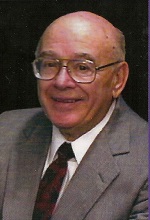
by Jack Tanner
The multiple positions and voids that Jesus fills may seem to be in conflict. Actually, they blend together in harmony. Jesus was the Lamb, the one who offered the sacrifice, and the High Priest. These positions harmonize to make our redemption possible.
Men and women of talent can usually only do one thing to perfection at one time. To accomplish several tasks at the same time is often to compromise the attention needed to perform all things well.
To understand Jesus only in His power is to discount His compassion. To separate God’s love from His actions is to alienate His ultimate purpose. Looking at one facet without seeing the overall plan is to walk in confusion.
For centuries theologians have looked at only one element of His plan without seeing the whole. The deity of Jesus cannot be fully understood by viewing only one Scripture. The harmony of the Old Testament prophecies with the fulfillment as recorded in the Gospels and the Epistles gives us a more complete picture.
Jesus was both human and God. He is both the Son of God and the Everlasting Father. To separate one position from the other is to become confused about who Jesus is. It would seem in the human mind that since Jesus did not have an earthly father He could not fit the mold of being human. To accept that Jesus is the Everlasting Father and discount that He was also the Son of God when both are true is to deny both.
A Christian by action and not just by title will seek for the full truth. People see only as humans with a limited vision that alienates them from a higher realm. Because it is difficult for humans to see God beyond their own limited knowledge many place limitations on God.
One office of God does not interfere with the importance of an- other. Jesus is more than a son and a father; He is the creator of all things. His Spirit cannot be contained in only one vessel, such as God manifest in the flesh. This is evidenced by the fact that millions have received the Holy Ghost.
Faith bridges the gap between divinity and human understanding. The foolishness of trying to force God into a box to give Him characteristics or limited powers such as men experience would govern His actions and take away His deity.
Did God need a son? Isaiah said, “Unto us a child is born, unto us a son is given” (Isaiah 9:6). God did not need a son, it was us who needed a Redeemer, and the way He chose was to become a human sacrifice.
The scribes. and Pharisees were right. “Who can forgive sins, but God alone” (Luke 5:21)? Only the One who has been transgressed can forgive the transgressor. If another God forgave the sins against the first God, would our sins be forgiven?

